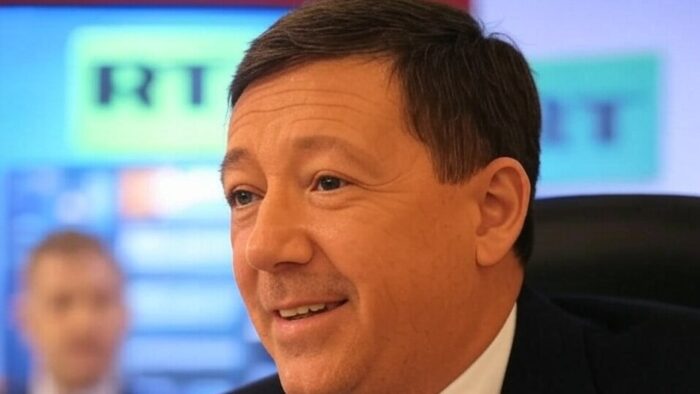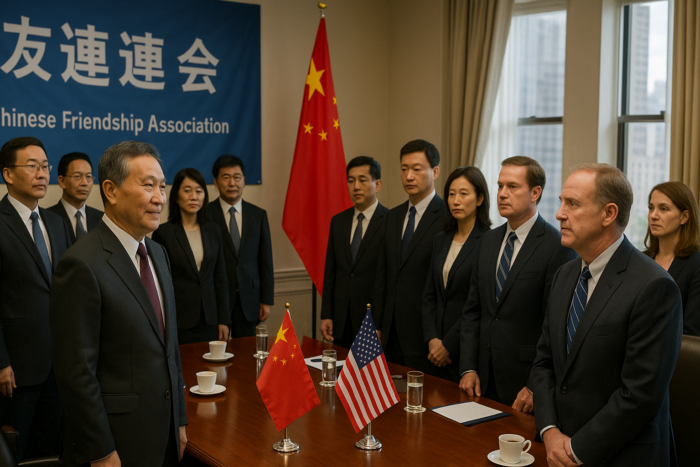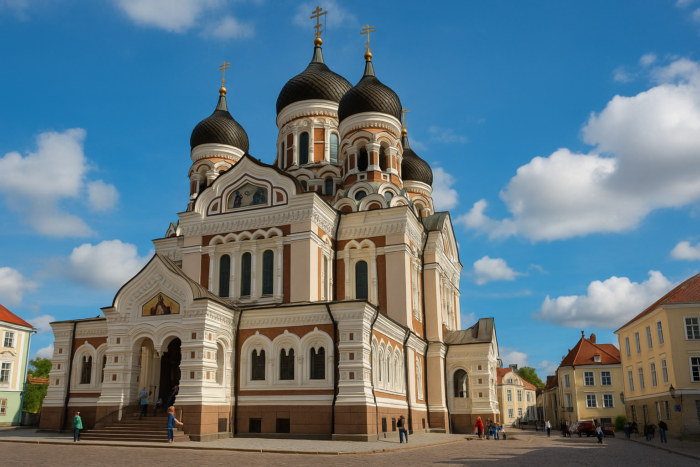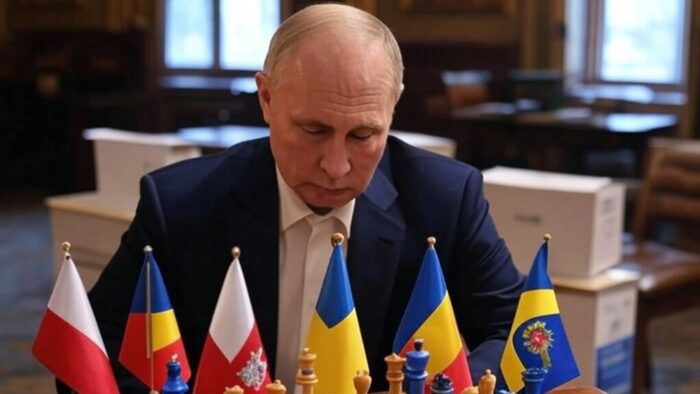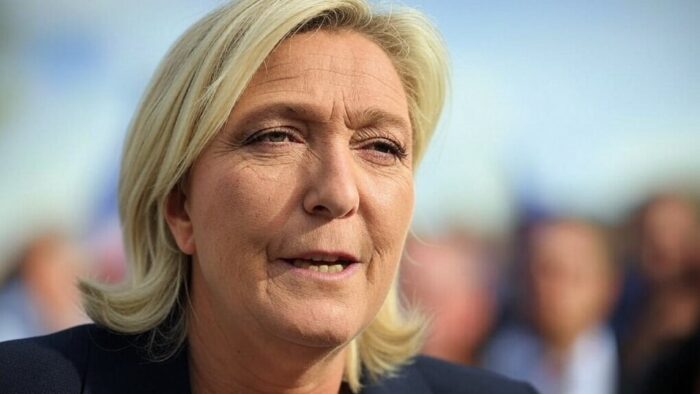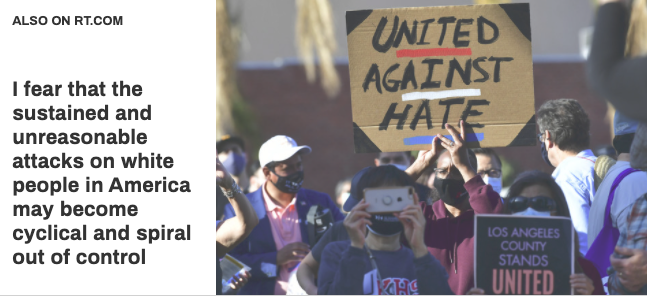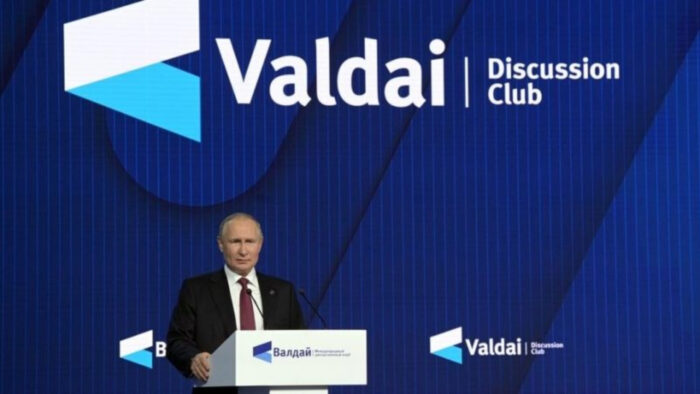Former UK Independence Party (UKIP) leader Nigel Farage is drawing attention as a possible agent of Russian influence. UK media is reporting on comments by a Belgian politician charging that Farage defended Russian Resident Vladimir Putin “all the time” while Farage was a member of the European Parliament. According to the indy100 report:
A member of the European parliament has claimed Nigel Farage defended Russia’s leader Vladimir Putin “all the time” during his stint in the EU. Guy Verhofstadt, a Belgian politician, made the comments about Farage during an interview on LBC with Nick Ferrari. They were prompted after Ferrari repeated claims made by Farage that the conflict we are seeing in Ukraine, perpetrated by the Russians, is because NATO “tried to poke the Russian bear with a stick”. In response, Verhofstadt spoke about Farage’s behaviour when he too was a member of the European parliament (a position he held from 1999 until Britain left the EU), saying he was always “defending” Putin. Verhofstadt said: “There he was all the time defending Putin. I found it a shame. I’m thinking [back] to Winston Churchill who had… another opinion about the responsibilities of Britain than Farage colluding with Putin.” Ferrari challenged Verhofstadt on the claim that Farage colluded with Putin. Verhofstadt replied: “So he was simply defending the positions of Russia and denying, in fact, Ukrainians and Belarus and Georgians and Moldavia to chose their own path to democracy.
Read the rest here.
In addition, Briitish politician Christopher John Bryant has alleged that Farage was paid a large sum of money in 2018 by Russian state-backed media RT (formerly Russia Today). According to Bryant’s statement posted on Twitter:
Labour’s @RhonddaBryant calls for @Arron_banks to be sanctioned and cites @IsabelOakeshott who described Banks as an “agent of influence for the Russian state”. He adds that Nigel Farage received £548, 573 in 2018 from Russia Today, which is funded by the Russian government.
Farage subsequently denied the claim, stating he only received “two small appearance fees” with both “well under £5,000”.
Farage had already received media scrutiny in 2014 over his monthly RT appearances. According to a report in The Guardian:
Nigel Farage’s near monthly appearances on state-owned Russia Today have come under scrutiny after his expression of admiration for Vladimir Putin this week. In one of his 17 appearances on the channel seen by the Guardian and transmitted since December 2010, he claims Europe is governed not by elected democracies but instead “by the worst people we have seen in Europe since 1945”. The Ukip leader has appeared so frequently that he is cited in literature for the TV station Russia Today as one of their special and “endlessly quotable” British guests. “He has been known far longer to the RT audience than most of the British electorate,” Russia Today claims. The Ukip leader did not issue a word of criticism of Russian democracy in any of the Russia Today interviews viewed by the Guardian. Last August he told the channel that British intervention in Libya and Syria would go ahead regardless of any vote in the UN, and said he was still not sure President Bashar al-Assad had used chemical weapons.
Read the rest here.
In the same report, Chris Bryant said Farage was “rapidly becoming the Berlusconi of Britain.”
In 2017, the NYT characterized RT as follows:
Analysts are sharply divided about the influence of RT. Pointing to its minuscule ratings numbers, many caution against overstating its impact. Yet focusing on ratings may miss the point, says Peter Pomerantsev, who wrote a book three years ago that described Russia’s use of television for propaganda. “Ratings aren’t the main thing for them,” he said. “These are campaigns for financial, political and media influence.” RT and Sputnik propel those campaigns by helping create the fodder for thousands of fake news propagators and providing another outlet for hacked material that can serve Russian interests, said Ben Nimmo, who studies RT for the Atlantic Council. Whatever its impact, RT is unquestionably a case study in the complexity of modern propaganda. It is both a slick modern television network, dressed up with great visuals and stylish presenters, and a content farm that helps feed the European far right. Viewers find it difficult to discern exactly what is journalism and what is propaganda, what may be “fake news” and what is real but presented with a strong slant.
